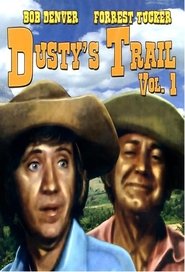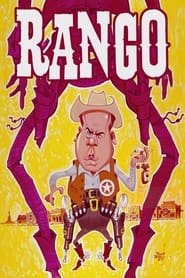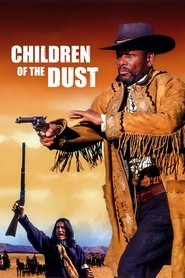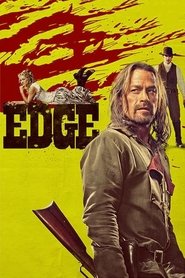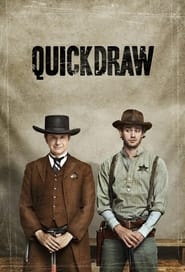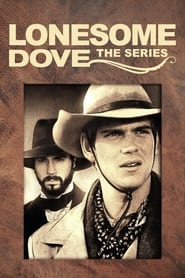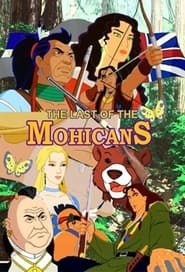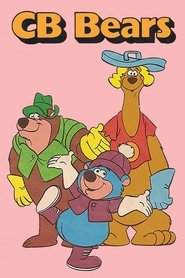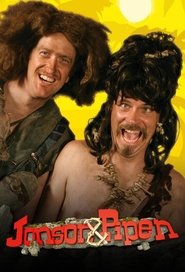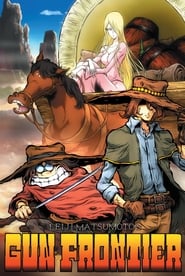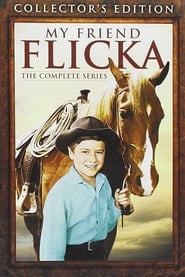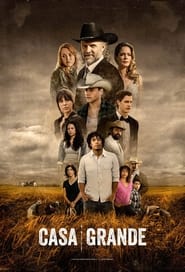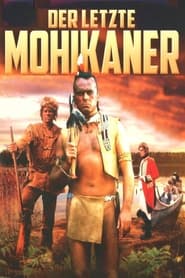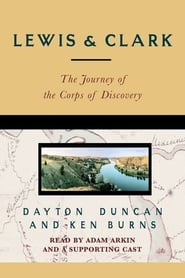Western TV Series - Page 12
-
Dusty's Trail
1973
Dusty's Trail
1973
star 5Dusty's Trail is an American Western/comedy series that aired in syndication from September 1973 to March 1974 starring Bob Denver and Forrest Tucker. The series is a western-themed reworking of Gilligan's Island. The series, set in the latter 19th century, is about a small, diverse cluster of lost travelers, who become separated from their wagon train. -
Rango
1967
Rango
1967
Rango is an American Western situation comedy starring comedian Tim Conway which was broadcast in the United States on the ABC television network in 1967. In Rango, Conway played an inept Texas Ranger who had been assigned to the quietest post the Rangers had, Deep Wells, so as to keep him from creating unnecessary trouble. The Rangers apparently had wanted him removed from the service altogether but were prevented from doing so by the fact that his father was their commander. But he seemed to bring his own trouble with him, as crime suddenly returned to a place that had seen very little of it the prior 20 years. Also appearing in Rango was the American Indian character Pink Cloud, an overly-assimilated Indian who was very fond of the ways of the whites and whose command of the English language was generally better than theirs. The theme song co-written by Earle Hagen and sung by Frankie Laine. The series ran for less than a year. TV Guide ranked the series number 47 on its TV Guide's 50 Worst Shows of All Time -
Children of the Dust
1995
Children of the Dust
1995
star 7Gypsy Smith, is a gunfighter and a bounty hunter. When he leads the US army into a Cheyenne camp to capture a suspected Indian renegade, a long train of events begins that finally lead to that 'good day to die'. White Wolf, only a child, is one of the few survivors of the massacre of his tribe that day, and Gypsy brings him to live with the Maxwell family, where he grows up not fully Indian and not really white but a bit too close to Rachel, the Maxwell daughter. Gypsy now reappears, leading a group of Black settlers from the post-Civil War South to start a new life in a town of their own - Freedom in the Oklahoma Territory, its first black settlement. White Wolf (or Corby as a 'white' name') is now with his people, but all of these parts come back together in conflict, violence, loss, and Pyrric triumph. -
Edge
2015
Edge
2015
Missouri, 1865. Josiah Hedges aka "Edge" returns home from the Civil War to discover his closest comrades-in-arms have betrayed him, sparking a bloody reign of vengeance. A mysterious beauty crosses Edge's path, and together they will uncover a dark conspiracy that extends to the highest ranks of American power. -
Quick Draw
2013
Quick Draw
2013
star 6.4An improvised comedy about Sheriff John Henry Hoyle's attempts to bring order to a raucous frontier town. -
Lonesome Dove: The Series
1994
star 6.9Set in the small western town of Curtis Wells, Lonesome Dove: The Series follows first the romance and later the marriage of Newt Call and Hannah Peale, and the obsession that Clay Mosby, who owns most of the town, has with young Hannah, who looks remarkably like his late wife, Mary. In addition to the talented regular Canadian cast of Scott Bairstow, Christianne Hirt, and Eric McCormack, the show also featured the recurring players of Dennis Weaver as legend Buffalo Bill Cody, Diahann Carroll as innkeeper and widow Ida Grayson, Paul Johansson as newspaperman and family member Austin Peale, and Paul Le Mat as Hannah's father and the editor of the local paper. -
L'ultimo dei Mohicani
2006
star 6In 1700 in America the stories of three warriors, two Mohicans, an European lived with Mohicans, and two Englishes, Cora and Alice (daughters of the colonel Munro) cross each other, in the journey to Fort Henry -
CB Bears
1977
CB Bears
1977
star 5.5CB Bears is an animated American anthology television series produced by Hanna-Barbera Productions for NBC's Saturday morning children's programming. It ran in 1977, airing 13 episodes that spanned one season. This series featured six segments making it one of the longest (content-wise) HB series in the 70's. The show debuted with segments, CB Bears, Blast-Off Buzzard, Heyyy, It's the King!, Posse Impossible, Shake, Rattle and Roll and Undercover Elephant. -
The Pinkertons
2014
The Pinkertons
2014
star 6.2Set in a young America still reeling from the Civil War, The Pinkertons follows Allan Pinkerton—founder of Pinkerton's National Detective Agency— his son, William, and America’s first female detective, Kate Warne, as they solve crimes throughout the “Wild West” of the 1860s. -
The Roy Rogers and Dale Evans Show
1962
star 5The Roy Rogers and Dale Evans Show is a Western comedy and variety program. In addition to Rogers and Evans, the program featured the Sons of the Pioneers, Pat Brady, and Cliff Arquette. -
Pony Express
1960
Pony Express
1960
star 6.5Pony Express is an American western television series about the adventures of an agent in the 1860s of the Central Overland Express Company, better known as the Pony Express. The half-hour program starring Grant Sullivan was created by California National Productions. Pony Express ran for thirty-five episodes in syndication from the fall of 1959 until the May 1960. -
Jonson & Spout
2006
Jonson & Spout
2006
star 5Jonson & Spout is a Swedish comedy series for children and childlike adults that began production in 2005. Written and directed by Per Simonsson. 2006-2012 has five seasons shown on TV4, a total of 75 sections. -
Gun Frontier
2002
Gun Frontier
2002
star 6.7Sea Pirate Captain Harlock and the errant samurai, Tochiro arrive in the United States on the Western Frontier. Along with a mysterious woman they meet along the way, the two friends challenge sex rings, bandits, and a corrupt sheriff. They are searching for a lost clan of Japanese immigrants, and they will tear Gun Frontier from end to end until they find it. -
My Friend Flicka
1955
My Friend Flicka
1955
star 5.7My Friend Flicka is a 39-episode western television series set at the fictitious Goose Bar Ranch in Wyoming at the turn of the 20th century. The program was filmed in color but initially aired in black and white on CBS at 7:30 p.m. Fridays from February 10, 1956, to February 1, 1957. It was a mid-season replacement for Gene Autry's The Adventures of Champion. Both series, however failed in the ratings against ABC's The Adventures of Rin Tin Tin. After the initial Friday airing, viewers could still find the series on CBS Saturdays at 7 p.m. Eastern during March 1957, on Sundays at 6 p.m. from April to May 1957, and on Wednesdays at 7:30 p.m. from June to August 1957. NBC carried the program in color at 6:30 p.m. Sunday from September to December 1957 and at 7 p.m. Sunday from January to May 1958. In subsequent years, the series aired mostly on Saturday mornings on all networks. The Disney Channel ran it on Monday evenings in the mid-1980s. Over the years many viewers were unaware that the series produced episodes f -
Casa Grande
2023
Casa Grande
2023
star 5Several families in the farmland of Northern California navigate universal themes of class, immigration, culture and family. -
The Last of the Mohicans
1971
star 4.7The adventures of Natty 'Hawkeye' Bumppo and his Indian companions, caught in a war between the French and English in upstate New York in 1757. -
The Road West
1966
The Road West
1966
star 5The Road West is an American Western television series that aired on NBC from September 12, 1966 to May 1, 1967 for twenty-nine episodes with rebroadcasts continuing until August 28. The hour-long series, sponsored by Kraft Foods, aired in the 9 p.m. Eastern Monday time slot opposite The Andy Griffith Show and Family Affair on CBS and the crime drama Felony Squad and the prime time soap opera Peyton Place on ABC. Perry Como's Kraft Music Hall originally alternated with the series as monthly specials. -
Four Feather Falls
1960
Four Feather Falls
1960
star 6Four Feather Falls was the third puppet TV show produced by Gerry Anderson for Granada Television. It was based on an idea by Barry Gray, who also wrote the show's music. The series was the first to use an early version of Anderson's Supermarionation puppetry. Thirty-nine 13-minute episodes were produced, broadcast by Granada from February until November 1960. The setting is the late 19th-century fictional Kansas town of Four Feather Falls, where the hero of the series, Tex Tucker, is sheriff. The four feathers of the title refers to four magical feathers given to Tex by the Indian chief Kalamakooya as a reward for saving his grandson: two allowed Tex's guns to swivel and fire without being touched whenever he was in danger, and two conferred the power of speech on Tex's horse and dog. Tex's speaking voice was provided by Nicholas Parsons, and his singing voice by Michael Holliday. The series has never been repeated on British television, but it was released on DVD in 2005. -
Lewis & Clark - The Journey of the Corps of Discovery
1997
star 7.5Lewis & Clark: The Journey of the Corps of Discovery tells the remarkable story of the entire Corps of Discovery – not just of the two Captains, but the young army men, French-Canadian boatmen, Clark’s African-American slave, and the Shoshone woman named Sacajawea, who brought along her infant son. As important to the story as these many characters, however, was the spectacular land itself, and the promises it held.

